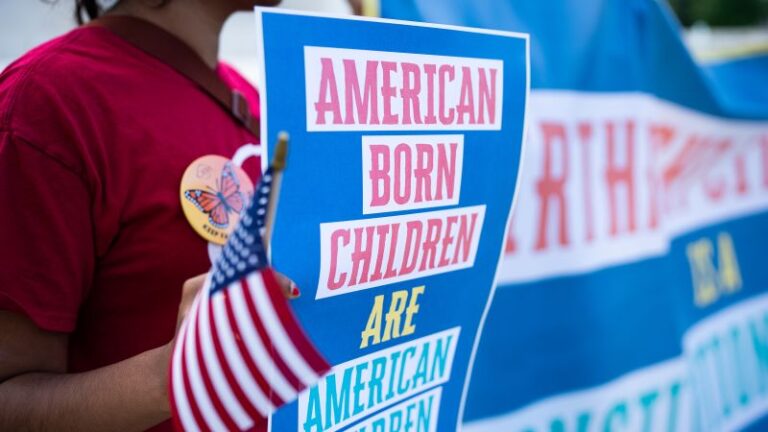A federal appeals court appeared ready on Friday to become the second such court in the country to rule that President Donald Trump’s executive order seeking to end birthright citizenship is unlawful.
A three-judge panel of the Boston-based First US Circuit Court of Appeals spent two hours looking skeptically at Trump’s Day One order in a series of cases in which lower courts said the policy violated the Constitution, decades-old Supreme Court precedent and federal law.
“We have an opinion of the Supreme Court that we aren’t free to disregard,” Chief Judge David Barron said at one point, referring to an 1898 Supreme Court case known as United States v. Wong Kim Ark that affirmed the idea that most people born on American soil are entitled to citizenship.
Other members of the panel similarly said they were required to stick with the holding in that case, including Judge Julie Rikelman, who said the Trump administration was essentially asking the court to adopt the dissenting opinion issued in the 19th century case.
“We have to apply the majority decision, not the dissenting opinion,” she told DOJ attorney Eric McArthur.
A ruling against the administration would represent the second time this summer that an appeals court, after reviewing the merits of Trump’s order, concluded that it was unlawful. Last month, the 9th US Circuit Court of Appeals sided against Trump in a separate case. The rulings could ultimately be appealed up to the Supreme Court.
The First Circuit judges did not indicate on Friday when they would issue a decision.
Signed by Trump on January 20, the executive order, titled “PROTECTING THE MEANING AND VALUE OF AMERICAN CITIZENSHIP,” said that the federal government will not “issue documents recognizing United States citizenship” to any children born on American soil to parents who were in the country unlawfully, or were in the US lawfully, but temporarily.
In the set of cases before the Boston-based appeals court, three lower courts issued separate preliminary injunctions earlier this year that prevented Trump from implementing any part of his policy. (Other lower-court decisions similarly jammed up the policy). Among those rulings was a nationwide injunction, which barred Trump from enforcing his order anywhere in the country.
The panel of judges had previously declined to lift those rulings while the cases unfolded and the case was appealed up to the Supreme Court on an emergency basis. The high court – without reviewing the merits of Trump’s order – made it more difficult for litigants to win nationwide orders blocking executive branch policies.
While the First Circuit judges – all of whom were appointed by Democratic presidents – asked a few questions on Friday that were somewhat critical of technical arguments being pushed by some of the challengers in the cases, they showed no support for Trump’s attempt to rewrite how birthright citizenship works in the US.
“The rule is that everybody who is born here is a citizen or subject,” Rikelman said at one point.


